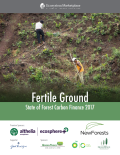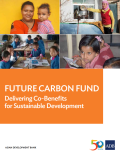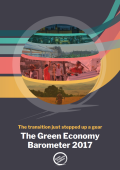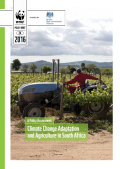
The report Fertile Ground: State of Forest Carbon Finance 2017 details innovative mechanisms that channel finance towards enhancing the ability of forests and other natural land areas to absorb carbon from the atmosphere. In particular, it shares the latest data and trends for three forest carbon finance mechanisms: voluntary carbon markets, compliance carbon markets, and payments for Reducing Emissions from Deforestation and Forest Degradation (REDD+) programs. For each of these mechanisms, the report covers the volumes and values of offsets transacted, key market actors, and relevant trends and policy developments. It also includes information about the projects that receive these payments, how they operate, and how they are influencing the communities and ecosystems around them.


Every year, the Green Economy Coalition publishes the Green Economy Barometer, an analysis of the state of the global movement towards a fair, sustainable future. The Barometer tracks the transition, both celebrating the successes, and calling attention to challenges yet to be overcome. It contains key stats, facts, and highlights from the year 2017, and it casts an eye ahead to what the next twelve months have in store.
The Green Economy Barometer 2017 argues that the light on the global green economy horizon has brightened this year: markets are booming; new narratives are emerging; investment is flowing. Tipping points in energy, transport, and global leadership may well be arriving. But that same story looks different from the ground: young people need jobs; biodiversity is in crisis; and rural economies are being left behind.

The policy brief Climate Change Adaptation and Agriculture in South Africa: A Policy Assessment considers the extent to which South African policies and strategic plans adequately address climate change adaptation in the agricultural sector.
It provides an overview of the interplay between climate change and agriculture in South Africa and unpacks an analytical framework underpinning the policy assessment. The brief reviews national policy documents and strategies based on this analytical framework and identifies key policy gaps based upon the review. It investigates the extent to which provincial (general overview of provincial coverage) and municipal (a limited sample of municipalities) governments address climate change adaptation in the agricultural sector and concludes with policy implications.

